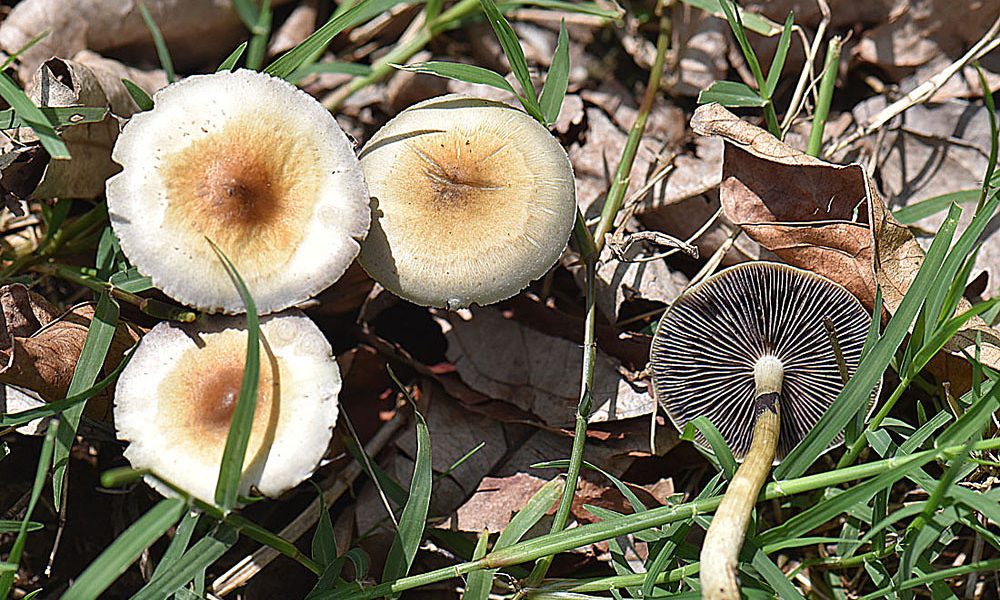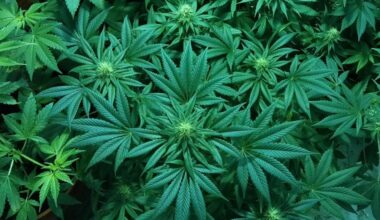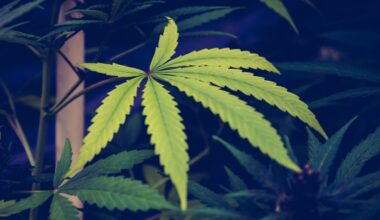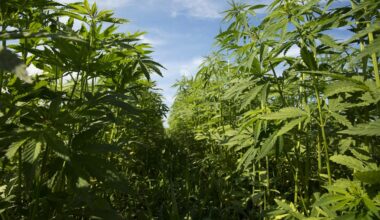The Hazel Park, Michigan City Council has approved a resolution designating September as a month of awareness of the therapeutic potential of psychedelics—making it the second city to take the symbolic additional step after locally decriminalizing natural plants and fungi.
The measure, sponsored by Councilmember Luke Londo, passed without dissent at a meeting on Tuesday, officially putting “Entheogenic Plant and Fungi Awareness Month” on the city’s calendar. This comes about six months after Hazel Park lawmakers separately voted to make laws criminalizing psychedelics among the city’s lowest law enforcement priorities under a resolution championed by the same sponsor.
Life’s short.
Take mushrooms 🍄 and decriminalize nature.
— Luke Londo (@llondo) September 14, 2022
Michigan has stood out as especially active on the psychedelics reform front, with multiple cities, including Detroit, moving to deprioritize enforcement of laws against substances such as psilocybin and ayahuasca. Activists in the state also took steps to put psychedelics legalization on the statewide ballot this year—but they ultimately decided to delay the reform campaign and aim for 2024 instead.
The whereas section of the new Hazel Park resolution states that entheogenic plants and fungi have shown to be effective treatment options for a wide range of mental health conditions such as substance misuse, severe depression and symptoms of post-traumatic stress disorder. The substances are also used for “reasons of personal and spiritual growth,” it says.
It further notes that the federal Food and Drug Administration (FDA) has categorized psilocybin as a “breakthrough therapy,” and clinical research is showing promise for other psychedelics like ayahuasca and ibogaine.
“NOW, THEREFORE, BE IT RESOLVED, that the City of Hazel Park does hereby call upon individuals and organizations to commit to increasing awareness and understanding of the potential benefits of entheogens for mental health, personal and spiritual growth, as well as honoring longstanding ancestral practices and relationships with entheogens,” the measure concludes.
Lawmakers in another Michigan city, Ann Arbor, that decriminalized psychedelics in 2020, became the first U.S. city to make September “Entheogenic Plants and Fungi Awareness Month” last year.
Londo, the Hazel Park sponsor, told Marijuana Moment on Wednesday that the city’s decision to decriminalize psychedelics “was a huge victory, but it’s critical that we continue to advocate for and normalize these natural medicines as much as possible.”
“Designating September as Entheogenic Plant and Fungi Awareness Month demonstrates our continued commitment to sensible policy, and hopefully signals to the multiple cities in Michigan currently debating decriminalizing resolutions that there is widespread appeal and support for entheogenic plants and fungi,” the councilmember said, adding that the resolution was approved ahead of the second annual EntheoFest this weekend that he’s also sponsoring.
Londo said that psilocybin “has done remarkable things for my mental health, and I’m grateful to use my position as an elected official to create opportunity for others to benefit in the same way I have.”
While Michigan has proved to be a hotbed for psychedelics reform over recent years, it’s certainly not alone in the movement, which began in earnest after Denver became the first U.S. city to decriminalize psilocybin mushrooms at the ballot in 2019.
—
Marijuana Moment is tracking more than 1,500 cannabis, psychedelics and drug policy bills in state legislatures and Congress this year. Patreon supporters pledging at least $25/month get access to our interactive maps, charts and hearing calendar so they don’t miss any developments.![]()
Learn more about our marijuana bill tracker and become a supporter on Patreon to get access.
—
Just this week, Atlanta lawmakers met to discuss a proposed resolution in support of locally decriminalizing psychedelics, hearing testimony on the therapeutic benefits of entheogenic substances and discussing a plan to further consider the reform in a work session.
The hearing happened just weeks after a Georgia House committee met at the state level to separately talk about the therapeutic potential of psychedelics like psilocybin to treat serious mental health conditions that commonly afflict military veterans.
Lawmakers in Missouri recently met to discuss possible solutions to the military veterans’ mental health and suicide crisis, with several people testifying about the possible therapeutic potential of psychedelics for the at-risk population.
And last week, local San Francisco lawmakers unanimously approved a measure calling for the decriminalization of psychedelics like ibogaine and ayahuasca—locally, in the state and federally.
The resolution made a point to note that the “state legislature has already started the conversation around the decriminalization of personal possession of small amounts of seven psychedelic substances,” in the form of a bill from California Sen. Scott Wiener (D) that passed the Senate and several Assembly committees before being significantly scaled back in a final panel and ultimately pulled by the sponsor.
Local psychedelics decriminalization has been enacted in several major cities in recent years, including Oakland, Santa Cruz and Seattle. A slew of Massachusetts cities have taken similar steps. Voters in the nation’s capital of Washington, D.C. also decriminalized.
In 2020, Oregon went even further, with voters passing a ballot measure to legalize psilocybin mushrooms for therapeutic use, while also enacting broad drug decriminalization. And this November, Colorado voters will get the chance to make history once again, with an initiative to legalize psychedelics possession for adults and create psilocybin “healing centers” in the state.
Federal health officials are also taking note of the increased adult use of certain entheogenic substances. As National Institute on Drug Abuse (NIDA) Director Nora Volkow put it earlier this year, the “train has left the station” on psychedelics.
The U.S. Department of Health and Human Services (HHS) recently said that it is actively “exploring” the possibility of creating a task force to investigate the therapeutic of certain psychedelics like psilocybin and MDMA in anticipation of federal approval of the substances for prescription use.
That came in response to letters from bipartisan congressional lawmakers, state legislators and military veterans, who implored the HHS secretary to to consider establishing an “interagency taskforce on the proper use and deployment of psychedelic medicine and therapy.”
While Congress hasn’t kept pace with the local and state psychedelics reform movement, more lawmakers have started engaging on the issue. Rep. Jared Huffman (D-CA) told Marijuana Moment earlier this month that natural plants and fungi could be a therapeutic “game changer.”
Read the text of the Hazel Park psychedelics resolution below:
Photo courtesy of Dick Culbert.
Medical Disclaimer:
The information provided in these blog posts is intended for general informational and educational purposes only. It is not a substitute for professional medical advice, diagnosis, or treatment. Always seek the advice of your physician or other qualified healthcare provider with any questions you may have regarding a medical condition. The use of any information provided in these blog posts is solely at your own risk. The authors and the website do not recommend or endorse any specific products, treatments, or procedures mentioned. Reliance on any information in these blog posts is solely at your own discretion.






